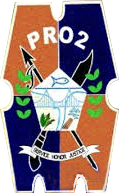Philippine National Police
The Philippine National Police (PNP) is the national police force of the Philippines. It is responsible for law enforcement throughout the country and is under the administrative control of the National Police Commission and the Department of the Interior and Local Government (DILG). The PNP was established on January 29, 1991, as a result of the merger of the Philippine Constabulary and the Integrated National Police.
History[edit | edit source]
The PNP was created by Republic Act No. 6975, also known as the "Department of the Interior and Local Government Act of 1990." This act reorganized the Department of the Interior and Local Government and established the PNP as a civilian national police force. The PNP officially began operations on January 29, 1991, replacing the Philippine Constabulary and the Integrated National Police.
Organization[edit | edit source]
The PNP is organized into various regional offices, each responsible for law enforcement in their respective areas. These include:
- Police Regional Office 1 - Responsible for the Ilocos Region.
- Police Regional Office 2 - Responsible for the Cagayan Valley Region.
- Police Regional Office 3 - Responsible for Central Luzon.
The PNP is headed by the Chief of the Philippine National Police, who is appointed by the President of the Philippines. The Chief is assisted by the Deputy Chief for Administration, the Deputy Chief for Operations, and the Chief of the Directorial Staff.
Functions[edit | edit source]
The primary functions of the PNP include:
- Enforcing laws and maintaining peace and order.
- Preventing and investigating crimes.
- Apprehending offenders.
- Maintaining public safety and internal security.
- Providing assistance during emergencies and disasters.
Training and Education[edit | edit source]
The PNP Academy, located in Silang, Cavite, is the primary training institution for future police officers. It offers a Bachelor of Science in Public Safety, which is a four-year course designed to prepare cadets for a career in law enforcement.
Challenges[edit | edit source]
The PNP faces several challenges, including issues of corruption, human rights violations, and the need for modernization and reform. Efforts are ongoing to address these issues and improve the effectiveness and integrity of the police force.
Also see[edit | edit source]
Search WikiMD
Ad.Tired of being Overweight? Try W8MD's physician weight loss program.
Semaglutide (Ozempic / Wegovy and Tirzepatide (Mounjaro / Zepbound) available.
Advertise on WikiMD
|
WikiMD's Wellness Encyclopedia |
| Let Food Be Thy Medicine Medicine Thy Food - Hippocrates |
Translate this page: - East Asian
中文,
日本,
한국어,
South Asian
हिन्दी,
தமிழ்,
తెలుగు,
Urdu,
ಕನ್ನಡ,
Southeast Asian
Indonesian,
Vietnamese,
Thai,
မြန်မာဘာသာ,
বাংলা
European
español,
Deutsch,
français,
Greek,
português do Brasil,
polski,
română,
русский,
Nederlands,
norsk,
svenska,
suomi,
Italian
Middle Eastern & African
عربى,
Turkish,
Persian,
Hebrew,
Afrikaans,
isiZulu,
Kiswahili,
Other
Bulgarian,
Hungarian,
Czech,
Swedish,
മലയാളം,
मराठी,
ਪੰਜਾਬੀ,
ગુજરાતી,
Portuguese,
Ukrainian
Medical Disclaimer: WikiMD is not a substitute for professional medical advice. The information on WikiMD is provided as an information resource only, may be incorrect, outdated or misleading, and is not to be used or relied on for any diagnostic or treatment purposes. Please consult your health care provider before making any healthcare decisions or for guidance about a specific medical condition. WikiMD expressly disclaims responsibility, and shall have no liability, for any damages, loss, injury, or liability whatsoever suffered as a result of your reliance on the information contained in this site. By visiting this site you agree to the foregoing terms and conditions, which may from time to time be changed or supplemented by WikiMD. If you do not agree to the foregoing terms and conditions, you should not enter or use this site. See full disclaimer.
Credits:Most images are courtesy of Wikimedia commons, and templates, categories Wikipedia, licensed under CC BY SA or similar.
Contributors: Prab R. Tumpati, MD



